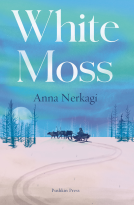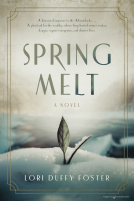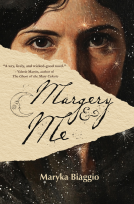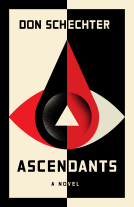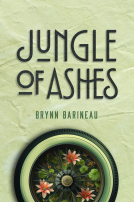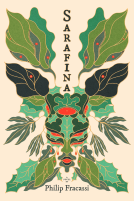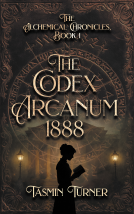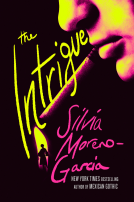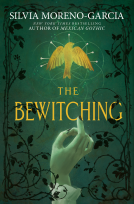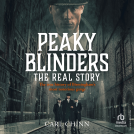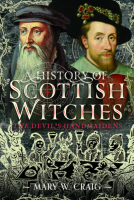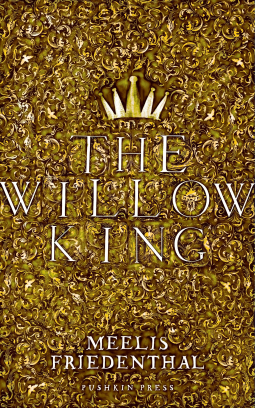
The Willow King
by Meelis Friedenthal
This title was previously available on NetGalley and is now archived.
Send NetGalley books directly to your Kindle or Kindle app
1
To read on a Kindle or Kindle app, please add kindle@netgalley.com as an approved email address to receive files in your Amazon account. Click here for step-by-step instructions.
2
Also find your Kindle email address within your Amazon account, and enter it here.
Pub Date Aug 01 2017 | Archive Date May 03 2017
Description
Wrapped into his long coat against the incessant rain and accompanied by a strange parrot, the young Dutch student Laurentius arrives in Estonia on an icy day at the end of the seventeenth century. On the run from a dark past and suspected of heresy, he has fled to Tartu, 'The City of the Muses', to study at the famous university. Laurentius has been searching obsessively for a cure for the mysterious melancholy which torments him, and is desperate to understand where the soul comes from, and how it relates to the body. But the more he searches, the more he is attracted to the world of instinct, superstition and magic of the peasants in the surrounding countryside. A world which he knew as a child, but which now persecutes him in dreams and visions which increasingly blur with reality.
In this astonishingly atmospheric novel, Friedenthal enters the bowels of Shakespeare's century to tell the story of anguished modernity, and of the advent of the Age of Enlightenment - while medicine is still progressing on the lines of humours, fears and alchemy, and the dark North dreams of radient antiquity, of symposia in Mediterranean gardens among the sweet hum of the bees - the birds of the muses, the souls of poets.
Advance Praise
"Poetic and thrilling." - Huffington Post (Italy)
"Written in beautiful and cultivated language ... Hugely enjoyable." - Estonian Literary Magazine
"Poetic and thrilling." - Huffington Post (Italy)
"Written in beautiful and cultivated language ... Hugely enjoyable." - Estonian Literary Magazine
Available Editions
| EDITION | Other Format |
| ISBN | 9781782271741 |
| PRICE | $17.95 (USD) |
| PAGES | 256 |
Average rating from 11 members
Featured Reviews
 Elena C, Reviewer
Elena C, Reviewer
What a fabulous find! I'd never read any Estonian literature before encountering this book, so naturally I jumped at the chance.
It's the late 1690s, and Laurentius Hylas, accompanied only by his parakeet Clodia, has come from Lieden, where he ran into trouble at the university there for his unusual views, to the University of Dorpat (Tartu). But the difficult journey weakens both of them, and Laurentius falls into the illness he is prey to, while Clodia dies and is eaten by a starving tramp. But is she then reborn, perhaps as a young woman? What is the strange stench haunting Laurentius, and why do the peasants fear him? And most of all, why are dead creatures coming back to life around him?
"The Willow King" is neither suspense, horror, fantasy, or historical fiction, combining aspects of all those genres. The basic story is grounded in recognizable historical facts: the state of the Swedish Empire in the late 17th century, the University of Dorpat and its move to Parnu following the famines of the 1690s, the ideas of philosophers such as Descartes that were circulating at the time. A good deal of the plot is also about the development of modern medicine: Laurentius, who has suffered from a chronic illness for some time, takes a tincture of willow bark to ease the flares of fever; meanwhile, his mentors recommend bloodletting and aurum potabile as better cures. There's a strong yet natural dramatic irony in those scenes: the modern reader is aware that willow bark produces aspirin, which can indeed lower a fever, while bloodletting and drinking gold are no longer practiced. But Laurentius doesn't know this, and, instead of instantly leaping at what the modern readers knows is the "correct" choice, is in a state of very realistic confusion over what to do. [And I have to say, as someone who also has a chronic illness, that things have not changed so very much: people, including doctors, are constantly suggesting painkillers, cleanses, and colloidal silver to me--the willow bark, bloodletting, and aurum potabile of our time). The treatment of these scenes both allows the reader to be inside of Laurentius's 17th-century head, while still appreciating things from a 21st-century perspective.
The writing is both pithy and atmospheric, conveying the mood of a damp, chilly, and hungry 17th century while still being extremely readable for the modern reader--indeed, this is a surprisingly short and quick read, for all the potential heaviness of its subject matter. The story walks the line between fantasy and the fantastique, as there is a strong suggestion that supernatural events take place, but whether they "really" do is an open question. The title itself partakes in this ambiguity: does it refer to the local peasant epithet for the devil, or to Laurentius himself, who, in keeping with modern science, uses willow to cure fevers? Or are they one and the same? A tantalizing and eminently readable story, perfect for those of us who want to get our feet wet in the chilly waters of Baltic fiction.
My thanks to NetGalley and the publisher for providing a review copy of this book. All opinions are my own.
 Joseph C, Reviewer
Joseph C, Reviewer
In his novel “The Bees” (renamed as “The Willow King” in Matthew Hyde’s excellent translation) Meelis Friedenthal takes us back to the late 17th Century and immerses us into the philosophical and scientific debates of the age.
His protagonist Laurentius is a scholar who has just arrived to complete his medical studies at Dorpat (modern-day Tartu, Estonia), after having hastily abandoned his course at the University of Leiden under suspicion of heresy. Laurentius embodies the contradictions of his world. Well abreast of the cutting-edge works of Boyle and Descartes, he nonethless clings on to the outmoded views of Aristotle and the medical theories of Galen regarding the body’s “four humours”. Besides, Laurentius appears to be still in thrall to the superstitions of the common people. Over the course of a feverish week spent in a rain-sogged Estonia, where peasants are suffering a terrifying famine and word is spreading of a mysterious and devilish “willow king”, he finds himself taken over by the supernatural dread which marked his boyhood.
This is undoubtedly a quirky work or – if you are feeling ungenerous – a flawed one. Apart from a few chapters, the novel is largely in third-person narrative which follows the interior monologues of Laurentius, interspersed with occasional, pointless exclamations (“Ah!”, “Right!”, “Hopeless!”, “Very well!”) The characters often indulge in learned explanations and debates, providing us quite unsubtly with historical context and an overview of current philosophical trends. The plot is initially sketch and eventually downright confusing.
Yet, despite my reservations, I lapped this novel up, haunted by its dark atmosphere and the author’s uncanny ability to recreate not just the sights and sounds of 17th century Estonia, but also the very thoughts of his characters. Indeed, my take on the novel is that it is a journey into the mindset of the period and that the more fantastical parts of the plot are meant to represent the (for us) irrational beliefs of the time. Friedenthal moves deftly between genres – this is, nominally, a historical novel but, when Friedenthal pulls out all the stops, it verges into Gothic and folk-horror territory and becomes deliciously creepy.
 Fran E, Reviewer
Fran E, Reviewer
17th Century Dorpat (present-day Tartu, Estonia) was a hotbed of spiritual learning as well as a city of depravity. Philosophical theories were debated by university students while poverty stricken, starving peasants lived on the outskirts of the city. Laurentius Hylas traveled from Holland, with his parakeet Clodia, to attend university in Dorpat. Constant rainfall, severe at times, created hazardous road conditions making carriage travel treacherous. The dampness and chill led to Clodia's death.
Laurentius' colorful, chirping parakeet had helped him maintain emotional balance. Her presence counterbalanced the melancholy he felt. Laurentius now had racing thoughts and noticed an unexpected acrid stench permeating the carriage he was traveling in. He smelled decay in the atmosphere that conjured up prior memories and guilt. He saw shadows among the trees.
Upon arriving in Dorpat, Laurentius matriculated at university and engaged in the philosophical discussions of the times. His damaged spiritual fortitude made him unable to concentrate. He dreamed of phantoms and witches, reliving contorted memories. He needed to determine a plan of action. Would bloodletting help balance his humours or would his "fevers" be better treated with a tincture of willow bark powder? Superstition abounded in the 17th Century. A Willow King, a shadowy figure emerging from the darkness, was rumored to come and steal the souls of the emotionally weak or physically ill. Laurentius needed to restore his body's equilibrium, so apparitions would no longer frequent his dreams and the black bile flowing through his body would no longer enter his soul.
"The Willow King" by Meelis Friedenthal was written about 17th Century medically diverse theories. Should melancholia be treated with folk remedies like willow bark tincture or with the medical practice of bloodletting? What is the nature of the soul? Where is it located in the body?
"The Willow King" is a fascinating tome that perhaps requires more than one reading to fully understand the rich content presented by Friedenthal.
Thank you Steerforth Press, Pushkin Press and Net Galley for the opportunity to read and review "The Willow King".
 Annie S, Librarian
Annie S, Librarian
The seventeenth century was a time of great confusion—even more so on the edge of the Swedish kingdom in Dorpat (now Tartu) Estonia. On the one hand, scientists like Newton and Boyle were making great strides in physics and chemistry, Descartes was taking on Aristotle and Plato, and Hobbes and Locke were reinventing government. On the other, 1692 saw the Salem Witch Trials and physicians were letting blood from Ireland to Turkey. This confusion between early modern science and old superstitions and beliefs is embodied in the protagonist of The Willow King, by Meelis Friedenthal (translated by Matthew Hyde). Laurentius, a Swedish university student at the new university in Tartu, is on a quest to understand the soul while repeatedly getting caught up in potentially deadly local superstition.
Laurentius is not a well man. He suffers from melancholia, an excess of black bile, and olfactory and gustatory hallucinations. He has fevers. He is regularly dissociated from reality. His quest to understand the nature of the soul is also a quest to try and cure himself of his afflictions. The only thing that seems to help him during these episodes is a tincture of willow bark and alcohol. Over the course of a week in Tartu, Laurentius tries to settle in and not let anyone know how abnormal he is.
Meanwhile, Estonia is in the middle of a famine. Those without connections to the Swedish government are starving. Things are getting ugly as peasants start to turn on each other, accusing each other of witchcraft or just attacking anyone who is a little bit strange. The title of this book refers to a spirit that people believe is visible when someone as about to die. Laurentius’ use of willow is problematic; it might even lead to his being accused of witchcraft even though we know now that that the salicylic acid in willow bark is good for treating pain and fever.
I was tempted to diagnose Laurentius for most of the book. Does he have schizophrenia? A seizure disorder? Is he making himself sick and is a hypochondriac? There are hints to the nature of Laurentius’ condition in some first person chapters. (Most of the book is in the third person.) When he was a child, Laurentius saw and did things that might be causing all of his symptoms. Perhaps a seventeenth century Freud might have sorted him out. But these revelations come much later in the book.
The Willow King is the sort of novel that leaves a lot of space for readers to draw their own conclusions about what’s going on and what it all means. Some readers, especially ones who don’t have the patience for the way Laurentius gets himself tangled up in mental knots of philosophy, will be annoyed by much of the book. Other readers who enjoy stepping into the brains of people who lived hundreds of years ago will probably like this book quite a lot. I don’t think I’ve read any other books set during this time that really captured how people lived during a time when modern science was taking off but old modes of thought were still hanging on.
I received a free copy of this book from NetGalley for review consideration.
 Juli R, Reviewer
Juli R, Reviewer
I am consistently looking for more foreign fiction to read but, since I can only read in three (modern) languages, naturally I have to rely on translations. Thankfully, publishers such as Pushkin Press keep coming to my aid by publishing brilliant fiction in translation. I was first intrigued by The Willow King because of its title and cover, it gave me that fairy tale-tingle down the spine. Also, I miss my university days so I loved going back to that exciting time through Friedenthal's book. Thanks to Pushkin Press and Netgalley for providing me with a copy of this book in exchange for an honest review.
The Willow King is a philosophical novel at heart, which is something I haven't read in a while. As such, it actually took me some time to get used to the writing. Although Friedenthal creates a rather straightforward and chronological narrative, he gives himself, and his protagonist Laurentius, a lot of time to ponder. A walk isn't just a walk, it is a time to think and to question, but also not necessarily a time for answers. This means that throughout the novel the reader will be challenged to put aside their interest in the narrative and consider the larger themes Friedenthal wants to address. Once I got into this rhythm or narrative-pondering-narrative-pondering I really enjoyed it, but it took me almost half the book to truly get into. However, with this structure Friedenthal does capture, I believe, the essence of a young mind. Everything has a meaning, things don't happen by accident and it all relates back to your own life. Your studies become essential to your mind and affect everything around you.
At the heart of The Willow King is the body-soul relationship, something I studied myself at school. For a long time, scientists and philosophers were obsessed with "finding" the soul in the body. If we had a soul, as the Bible clearly tells us, it must be somewhere inside of us. Some of the greatest minds wrote about this, from Aristotle to Decartes, and Friedenthal engages with all of their arguments in The Willow King. His protagonist being a student gives him the perfect setup to discuss these without boring the reader and his quest to find an answer also becomes the reader's. The novel is set in the 17th century, a time we consider modern, yet Friedenthal shows us how this was a period of history in which science and superstition walked hand in hand. Witches and demons are still real, as is the evil eye, and scientists tread a fine line between the factual and the supernatural. Just think of the alchemists and their obsession with making gold. This time in history is fascinating and Friedenthal brings it to life in a very realistic way. For more on this please do check out Joanna Demers' review, she knows a lot more about it than I do.
Meelis Friedenthal's writing is incredibly descriptive, in an atmospheric way. The constant rain, the threat of hunger that lingers at the edges of Dorpat, Laurentius' melancholy, it all feels credible and real. Friedenthal really manages to put the reader into Laurentius' mind, switching to first person to show us his dreams and relaying to us all his thoughts and worries. As such, it's not necessarily a very uplifting novel, but it is stunning. It borrows from a lot of different genres, horror, suspense, fantasy, but never truly commits to any. This could have gone spectacularly wrong, but it works for The Willow King. As I said above, it took me a while to get into this book but it enormously picked up for me towards the end. Strangely, things started coming together for me when they did for Laurentius as well, a sign that Friedenthal knows exactly what he is doing. Despite the relative heaviness of its topic, The Willow King is a quick read. As Friedenthal constantly keeps his readers questioning whether the supernatural events are truly happening or not, he spurs them on and makes them as desperate to find an answer as Laurentius. Matthew Hyde does an excellent job at translating Friedenthal's prose and capturing the atmosphere he tries to create.
Although The Willow King left me at times confused, by the end Friedenthal truly had me in her grasp. The novel will leave you with a great many questions to ask of our world, which is not a bad thing. I'd recommend this to those interested in philosophy and history.
 Laura N, Bookseller
Laura N, Bookseller
This was such a delight of a book. It tells the story of Laurentius, a Dutch scholar, who arrives in Estonia with his parakeet at the end of the seventeenth century. What follows is part historical novel and part philosophical musing. The author has captured such an otherworldly feeling that runs throughout the narrative as Laurentius aims to cure his melancholy and suffers from vivid dreams of death and witchcraft. I really enjoyed both aspects of this book. The historical detail regarding the town of Dorpat and the university is wonderful, as are the descriptions of the four humours theory of physiology and the various other medical practices of the day. Similarly, the more esoteric aspects of the narrative really worked too. There is a great discussion about the soul and lots of thought on witchcraft and demonology. All in all, this is a very strange book and as long as you accept that you probably won't know what is going on 100% of the time, it's a really rewarding read.
Readers who liked this book also liked:
Scott Meslow
Arts & Photography, Biographies & Memoirs, Nonfiction (Adult)
